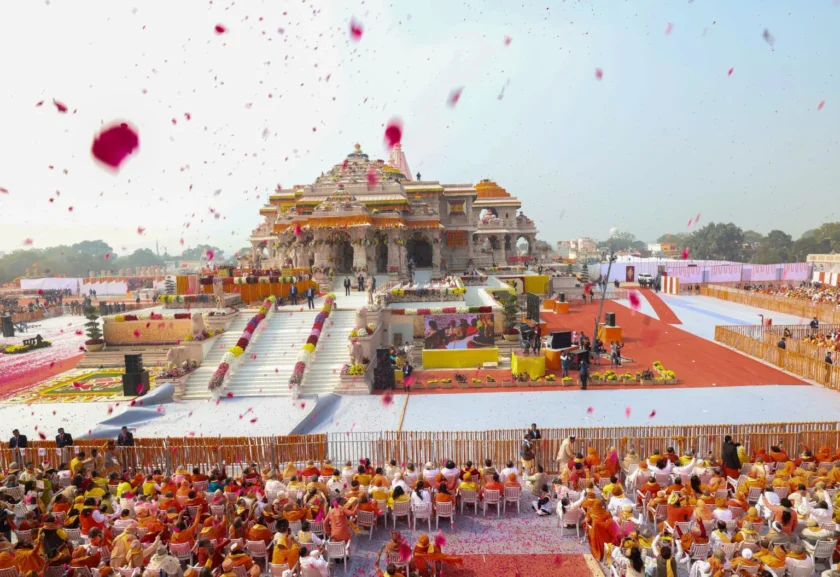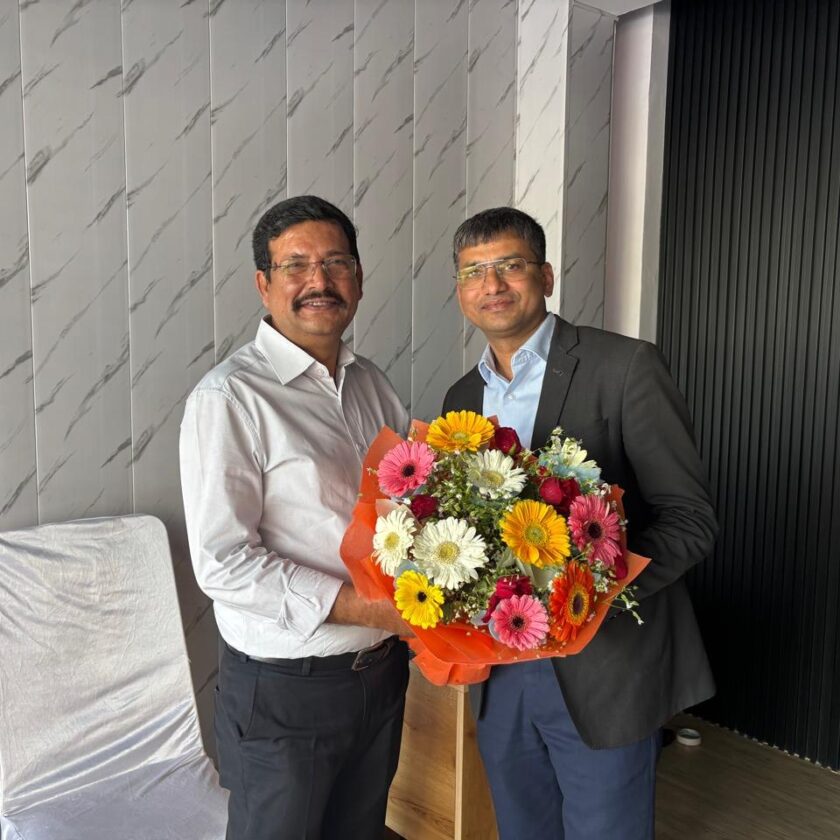Lucknow: Lucknow, the capital of Uttar Pradesh (U.P.), is not just a cultural and historical gem but a burgeoning economic powerhouse that serves as a vital business epicenter in the state. With its strategic location, robust infrastructure, diverse industries, and proactive government policies, Lucknow is driving U.P.’s ambition to become a $1 trillion economy by 2029. From traditional crafts to cutting-edge IT hubs, the city’s economic landscape is a dynamic blend of heritage and innovation, making it a magnet for investors, entrepreneurs, and corporations. This 1000-word exploration delves into the business perspective, highlighting why Lucknow stands as U.P.’s economic heartbeat.
Strategic Location and Connectivity: The Gateway to Growth
“A Central Hub Connecting Markets and Opportunities”
Lucknow’s geographical advantage is a cornerstone of its business prominence. Situated in the fertile Indo-Gangetic plain along the Gomti River, the city is centrally located in U.P., making it an ideal hub for trade and commerce. Its proximity to major cities like Delhi (500 km), Kolkata, and Varanasi, coupled with excellent connectivity, positions Lucknow as a gateway to northern India’s markets. The city is well-linked by road, rail, and air, with the Chaudhary Charan Singh International Airport being India’s fastest-growing in passenger footfall, handling millions annually. Upcoming projects like the Jewar Airport and expressways such as the Lucknow-Agra and Poorvanchal Expressways further enhance its accessibility.
This connectivity facilitates the movement of goods, people, and ideas, making Lucknow a preferred destination for businesses. As a “mandi” (wholesale market) town for agricultural produce like mangoes, melons, and food grains, it serves as a logistics hub for the surrounding agrarian regions. The city’s inclusion in the Uttar Pradesh State Capital Region, encompassing Hardoi, Sitapur, Unnao, Rae Bareli, and Barabanki, amplifies its economic influence across 27,826 square kilometers, fostering integrated development.
Diverse Industrial Ecosystem: From Tradition to Technology
“A Melting Pot of Heritage Crafts and Modern Industries”
Lucknow’s economy thrives on a diverse industrial base, bridging traditional craftsmanship with modern sectors. The city is renowned for its handicrafts, particularly Chikan embroidery and Lakhnawi Zardozi, which account for 60% of U.P.’s total exports. These crafts, rooted in the Nawabi era, support a robust small and medium enterprises (SME) sector, generating significant foreign exchange through exports of textiles, marble products, gems, and leather goods.
Beyond heritage, Lucknow is emerging as a hub for advanced industries. The city hosts major manufacturing units like Hindustan Aeronautics Limited, Tata Motors, and Scooters India Limited, contributing to aerospace and automotive sectors. The Yogi Adityanath government’s Aerospace and Defence Unit and Employment Promotion Policy 2024 targets ₹50,000 crore in investments and 100,000 jobs, with Lucknow at the forefront. The proposed BrahMos missile manufacturing unit and two Defence Research and Development Organisation (DRDO) centers underscore the city’s growing defence ecosystem.
The IT and electronics sectors are also gaining traction. Lucknow is being developed as India’s first AI City and the largest IT hub in the country, with the Software Technology Parks of India (STPI) and a biotech park in the pipeline. Global majors like IBM, Deloitte, Genpact, Teleperformance, Sify Technologies, and inMobi have established offices in the city, with IBM’s new AI-focused software lab at Platinum Mall in Sushant Golf City marking a significant milestone. Tata Consultancy Services (TCS) and HCL Technologies have long been present, and software exports from Lucknow reached ₹640.16 crore in 2025, with ambitions to grow fivefold.
Other key industries include pharmaceuticals, finance, and education. Lucknow hosts research and development (R&D) centers like the Central Institute of Medical and Aromatic Plants and the National Handloom Development Corporation, fostering innovation. The presence of regional headquarters for Sony Corporation, Reliance Retail, and institutions like the Small Industries Development Bank of India (SIDBI) and Pradeshiya Industrial and Investment Corporation of U.P. (PICUP) strengthens its financial and industrial framework.
Proactive Government Policies: Ease of Doing Business
“A Policy-Driven Engine for Investment”
The U.P. government’s focus on improving the ease of doing business (EoDB) has been pivotal in elevating Lucknow’s business stature. U.P. ranks second in India’s Business Reform Action Plan, having implemented over 500 reforms to attract investment. The Invest UP initiative, restructured to cut red tape, digitizes land use changes, fast-tracks environmental clearances, and ensures utilities like electricity and water within three months. These reforms have transformed U.P.’s image from a state plagued by bureaucratic hurdles to a preferred investment destination.
Lucknow benefits directly from policies like the Multi-Modal Logistics Park Policy 2024, positioning U.P. as a northern logistics hub, and the One District One Product (ODOP) scheme, which promotes local crafts like Chikan embroidery. The state’s 25+ sectoral policies cover IT, aerospace, pharmaceuticals, and tourism, with Lucknow as a key beneficiary. For instance, the Tourism and Hospitality sector, integral to the Make in India initiative, saw 318 million visitors in 2022, with Lucknow’s heritage sites like Bara Imambara and Rumi Darwaza driving footfall.
The government’s vision to achieve a $1 trillion economy by 2029 relies heavily on Lucknow’s infrastructure and talent pool. Initiatives like the ₹1,000 crore global convention center with 10,000-seat capacity aim to position the city as a host for major international events, boosting MICE (Meetings, Incentives, Conferences, and Exhibitions) tourism.

Talent Pool and Educational Hub: A Skilled Workforce
“Empowering Businesses with Youth and Expertise”
Lucknow’s demographic dividend is a key business asset. With 56% of U.P.’s 240 million population under the working age (18-60) and a median age of 20, the state offers one of India’s youngest workforces. Lucknow, as an educational hub, nurtures this talent through institutions like the Institute of Engineering and Technology (IET), Indian Institute of Management (IIM-Lucknow), and Dr. A.P.J. Abdul Kalam Technical University. These institutions produce skilled professionals in engineering, management, and technology, meeting the demands of IT, aerospace, and other sectors.
The city’s focus on skill development, through globally oriented programs and decentralized skill centers, addresses the global talent shortage projected to reach 8 million in manufacturing by 2030. Incubation centers and venture capital opportunities, supported by institutions like IIT-Kanpur and IIM-Lucknow, foster entrepreneurship, particularly in startups. Over 7,600 startups are registered in U.P. under the Startup India program, with Lucknow hosting six centers of excellence in AI, blockchain, and 5G.
Real Estate and Infrastructure: A Booming Market
“Building the Future with World-Class Facilities”
Lucknow’s real estate sector is a catalyst for business growth. The city’s skyline is dotted with malls, residential complexes, and business parks developed by giants like Parshvanath, Omaxe, Sahara, Unitech, and Emaar MGF. The demand for commercial and residential properties is driven by industrial growth and a rising middle class.
Infrastructure projects like the Lucknow Metro, flyovers, and the Kukrail forest reserve enhance the city’s appeal. U.P.’s leadership in sustainable urbanization, with over 1,400 green building projects under the Indian Green Building Council, positions Lucknow as a model for eco-friendly development. All government buildings in the city are mandated to be green, attracting environmentally conscious investors.
Challenges and Opportunities: The Road Ahead
“Turning Potential into Prosperity”
Despite its strengths, Lucknow lags behind cities like Noida and Meerut in per capita income and IT hub development, ranking seventh in U.P. by GDP per capita. However, ongoing investments in AI City, IT City by the Lucknow Development Authority (LDA), and the State Capital Region are poised to bridge this gap. The city’s vibrant social calendar and cultural heritage create opportunities in event management, tourism, and wellness sectors, while its growing tech scene opens doors for digital marketing and app development.
Lucknow’s Economic Ascendancy
“A City Powering U.P.’s Trillion-Dollar Dream”
Lucknow’s significance as U.P.’s business epicenter lies in its ability to blend tradition with modernity. Its strategic location, diverse industries, proactive policies, skilled workforce, and booming infrastructure make it a linchpin in the state’s economic transformation. As global giants like IBM and Deloitte set up shop, and with government initiatives paving the way for sustainable growth, Lucknow is not just keeping pace but setting the stage for U.P.’s rise as a global economic leader. For businesses seeking opportunity, Lucknow is where heritage meets ambition, and the future is being built today.









